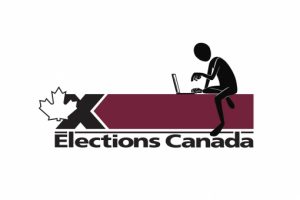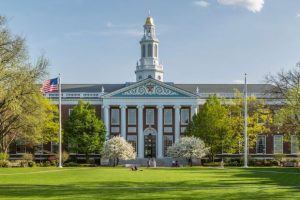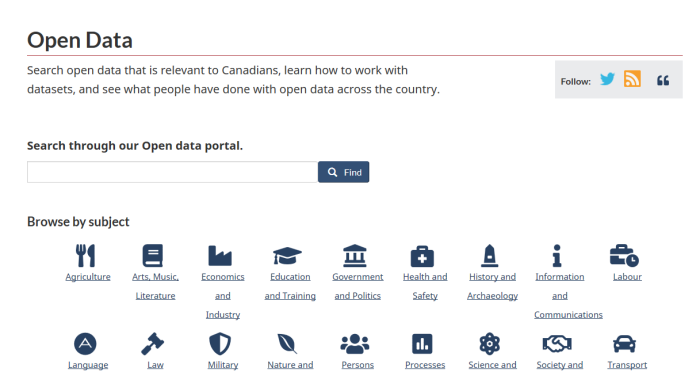Disclaimer: At the current time, I am affiliated with no party. These observations where made in (what seems like) a very different time.
Maxime Bernier makes policy arguments about why he left the CPC: (a) Equalization formula being unfair; (b) Supply management screwing over Canadians; (c) Free trade not supported by CPC members; (d) Trade war looming with U.S. over NAFTA and tariffs; (e) Corporate subsidies, to Ford, Bombardier, and others, which are a form of welfare; (f) Bloating bureaucracy with new ministers; (g) Vote buying in individual regions; (h) Refusing to discuss immigration and multiculturalism for fear of offending; (i) Pandering to ethnic groups and identity politics to buy votes; (j) Relying on polls and focus groups rather than having principles; (k) CPC has become morally bankrupt and stands for nothing; (l) Politics should be done differently
Andrew Scheer makes personal arguments about why Bernier left the party: (a) MB refusing to accept his 2017 loss; (b) MB is selfish; (c) MB needs to offer ideas and never did; (d) MB is putting personal ambition over party success.
At 0:20 (in the top video), Bernier states: ”My job is to offer solutions from a conservative perspective. Otherwise, what would be the point of getting involved in politics?”
Here is the main point of the article. Bernier started the PPC in order to advance conservative ideas, and to offer an alternative voice to millions of Canadians. However, there are some conservative policies that can benefit more left leaning voters as well, if the benefits are discussed honestly.
In order to attract Canadians from all areas on the political spectrum, it is necessary to offer ideas that benefit Canadians from all sides of the political spectrum. Not to pander to any particular group, but to offer common solutions.
Here are some ideas: (1) Lowering immigration; (2) Questioning identity politics; (3) Promoting unity; (4) Dismantling crown corporations; (5) Environmental Protection.
#1: Cutting Immigration Benefits Low Income Canadians
This is not to assert at all that there are not benefits to limited and controlled immigration. And to preempt any such claims, no, it is not a call to racial supremacy. However, there are a number of valid arguments to support this position:
(a) The employment rate is a supply/demand type of issue. When the number of job seekers (supply) rises, then the relative need (demand) falls. It means more people competing for fewer jobs, and that employers are in a position to pay less. That impacts lower earners the most. This is not racial claim in any way, just acknowledging a fact: more workers for less jobs drives down wages. Ann Coulter explains it very well.
(b) As social justice types like to point out, people usually don’t commit crime because they are bad, but often because of poverty, society, and lack of opportunities. To a degree, they are right. By that logic, wouldn’t it reduce some of the stressers that lead to crime?
(c) Housing prices, likewise, are also determined in a supply/demand fashion. See this article. More people competing for the same amount of housing drives prices up for both buying and renting.
(d) School learning may be drastically altered depending on the demographics and size of the immigration. For example, in California, Proposition 58 overturned the requirement that school be taught in English. Many parents were outraged that American born students were now having lessons taught in Spanish. This isn’t bigotry. The U.S. is an English country. And who attends public schools as opposed to private schools?
(e) Publicly funded health care is something the left claims is fundamental to being a Canadian. And to a degree, they are right. However, with higher immigration rates, it will put a burden on Canada’a public system, especially for those coming from countries where health care is relatively lacking. This results in longer wait times, and it won’t be the wealthy in those long waiting lines. It will be lower income people.
(f) If less money is spent on immigration programs, then there will be more money available to promotes Canadians to have more children. Which socio-economic group would benefit most from that?
(g) Regarding illegal immigration, the above still applies, but with the added downside that it is a slap in the face to those who come through legally. It rewards people for breaking the law, and punishes those who follow the law.
#2: Ending Identity Politics Benefits All Canadians?
This could have been added to #1, but after some thought, it deserves its own category.
That is explained here, here, here, and here. We do not need race hustlers like this, or like this.
While this sounds great in principle, how does one protect their identity otherwise? When hostile and incompatible cultures move to your country in large numbers, is it not your identity that is threatened? Does your way of life not risk being replaced by people who are cohesive, and who vote as a block?
In some sense this sounds lovely, but is unrealistic. The idea of ending identity politics only works when everyone is willing to do it, which of course is not the case.
That said, it still is baffling how people who support identity politics are offended by the idea of a national identity. A nation is reflected by its people. Rather than standing as one unit (albeit with some internal differences), those would support dividing the nation into small tribes that consider each other enemies.
#3: Unity is Our Strength, Regardless of Your Politics
The whole idea of multiculturalism is absurd. Having nothing in common with your neighbours does not make for a strong society. Tolerating everything, including this, becomes more important than defining what a nation is. To repeat, we can have differences between people, and different groups of people, but there has to be something that binds us together.
Civic nationalism is the concept that a nation and its people are held together by civic values, such as freedom and equality. The nation are bonded by abstract ideas, which are shared and promoted within. There certainly is a strong case to made that values and laws bind us.
However, what makes one civic nationalist country different than another? Don’t they all support freedom, tolerance and equality? And besides values, don’t people need something to bond them? If not values, then identity?
Tucker Carlson argued at PolitiCon that a common language is a strong unifier. Vladimir Putin argued that religion is such a unifier. Writer Steve Turley argues that religion and cultural traditions are what hold a society together. Candace Malcolm wrote that diversity is only one part of the picture. Maxime Bernier himself tweeted about focusing on traditions. All argue a form of ethno nationalism. (And no, it doesn’t have to be about race). There are many of these types of unifiers, but the underlying element is that the people have to have something in common. Values alone is insufficient.
Nations have been splitting up over the last century because they had nothing in common. They were balkanised. One exception is East and West Germany reuniting because they had a common language and culture.
It would be far more productive than what the status quo to have an honest discussion about what unites us as Canadians, and how we can make the society more cohesive. Unity is our strength.
#4: Dismantling Crown Corporations Makes Things Affordable
In short, a private business must operate efficiently in order to survive. If it delivers poor service, strikes frequently, or has huge cost overruns, then it goes out of business.
A government agency, for the most part, does not have to worry about such things. It is being supported by the public, and usually holds a monopoly. If it is run inefficiently, just raise taxes. If the workers strike every year, oh well. If the service and employees are truly awful, it doesn’t matter, as they are the only game in town.
2 such examples are ICBC, and Canada Post. Privatizing services where possible leads to more affordable products.
#5: Protecting the Environment Benefits Everyone
The UN global warming summits are a complete hoax. Polluting is okay as long as you pay a tax, or fly tens of thousands of people every year to summits to discuss cutting carbon emissions.
However, that is not to say there are not significant issues to address. There are: lacks of clean drinking water in areas; forest fires in the west annually; issues around oil extraction and pipelines; air quality in some areas; hazards in mining; forestry and invasive species; and many other problems.
The environment should be of everyone’s concern regardless of whether you view it from: an individual point of view, or a societal point of view. Unfortunately, when money and politics gets involved, honesty is about the first thing to go.
Admission: I don’t know nearly enough to advocate for specific policies. However, this is an issue which we have a common interest.
These are just a few ideas to consider, but in order to run a society effectively, something has to be offered to everyone. That said, it is much easier if the society is more homogenous and intact. It prevents fracturing.
Unity is strength.
Diversity (of thought) is strength.





